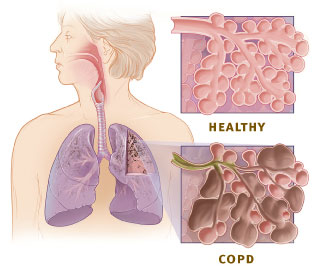Some people, especially ladies skip breakfast. A healthy and good breakfast is very good to kick start metabolism. The same is also advisable for the patients of Type II Diabetes Mellitus, particularly obese. Daily energy restricted to 1400 calories with big breakfast may help them.
According to the researchers, led by Dr Daniela Jakubowicz, from Tel Aviv University in Israel, published in the journal Obesity; it has been seen that high-calorie breakfast shows increased compliance and is more beneficial than high-calorie dinner for weight loss, insulin sensitivity, and hunger suppression.
The mechanism is very simple. A big and quality breakfast will kick start metabolism, thereby helps in consumption of energy; on the other hand skipping or a poor breakfast slows down metabolism. The lunch and dinner time hunger will be more; interval eating may increase to pacify it. Heavy supper also increase fat deposit as not much physical exercise is expected after that. These may eventually lead to more fat deposit and worsening of diabetes status.
It is said that, "Eat like prince in the morning, eat like a king in the lunch and eat like a beggar at night".
Starting a day on eggs or more protein in breakfast is the most important thing. Protein will digest slow, give adequate nutrition and give fullness; at the same time will reduce hunger.
Scientists studied 93 obese women who were split into two groups and given carefully structured meals. Both groups ate 1,400 calories daily for 12 weeks, but with opposite patterns of consumption.
One group consumed half their total calorie allowance at breakfast time. Breakfast consisted of 700 calories, lunch 500 and dinner just 200. The other group consumed 200 calories at breakfast, 500 at lunch and 700 at the end of the day.
After 12 weeks women in the "big breakfast" group had each lost an average of 17.8lbs and three inches off their waistlines. In comparison, women in the "big dinner" group lost 7.3lb and 1.4in off their waists.
The big breakfast group also experienced significant reductions in blood levels of insulin, glucose and triglyceride fats. Triglycerides, which contribute to heart disease, fell by more than a third in the big breakfast group but increased by 14.6% in the "big dinner" group.
"Poached egg on granary wholemeal toast, omelet, porridge with ground nuts and fresh berries, Greek yogurt with pumpkin and sunflower seeds and strawberries are the sorts of breakfasts one should look for a healthy start to the day. Good quality protein to fill you up, fresh fruit which is tasty and packed with nutrients, and some carbohydrates for energy."
According to the researchers, led by Dr Daniela Jakubowicz, from Tel Aviv University in Israel, published in the journal Obesity; it has been seen that high-calorie breakfast shows increased compliance and is more beneficial than high-calorie dinner for weight loss, insulin sensitivity, and hunger suppression.
The mechanism is very simple. A big and quality breakfast will kick start metabolism, thereby helps in consumption of energy; on the other hand skipping or a poor breakfast slows down metabolism. The lunch and dinner time hunger will be more; interval eating may increase to pacify it. Heavy supper also increase fat deposit as not much physical exercise is expected after that. These may eventually lead to more fat deposit and worsening of diabetes status.
It is said that, "Eat like prince in the morning, eat like a king in the lunch and eat like a beggar at night".
Starting a day on eggs or more protein in breakfast is the most important thing. Protein will digest slow, give adequate nutrition and give fullness; at the same time will reduce hunger.
Scientists studied 93 obese women who were split into two groups and given carefully structured meals. Both groups ate 1,400 calories daily for 12 weeks, but with opposite patterns of consumption.
One group consumed half their total calorie allowance at breakfast time. Breakfast consisted of 700 calories, lunch 500 and dinner just 200. The other group consumed 200 calories at breakfast, 500 at lunch and 700 at the end of the day.
After 12 weeks women in the "big breakfast" group had each lost an average of 17.8lbs and three inches off their waistlines. In comparison, women in the "big dinner" group lost 7.3lb and 1.4in off their waists.
The big breakfast group also experienced significant reductions in blood levels of insulin, glucose and triglyceride fats. Triglycerides, which contribute to heart disease, fell by more than a third in the big breakfast group but increased by 14.6% in the "big dinner" group.
"Poached egg on granary wholemeal toast, omelet, porridge with ground nuts and fresh berries, Greek yogurt with pumpkin and sunflower seeds and strawberries are the sorts of breakfasts one should look for a healthy start to the day. Good quality protein to fill you up, fresh fruit which is tasty and packed with nutrients, and some carbohydrates for energy."
...
Click here to Subscribe news feed from "Clinicianonnet; so that you do not miss out anything that can be valuable to you !!
...







